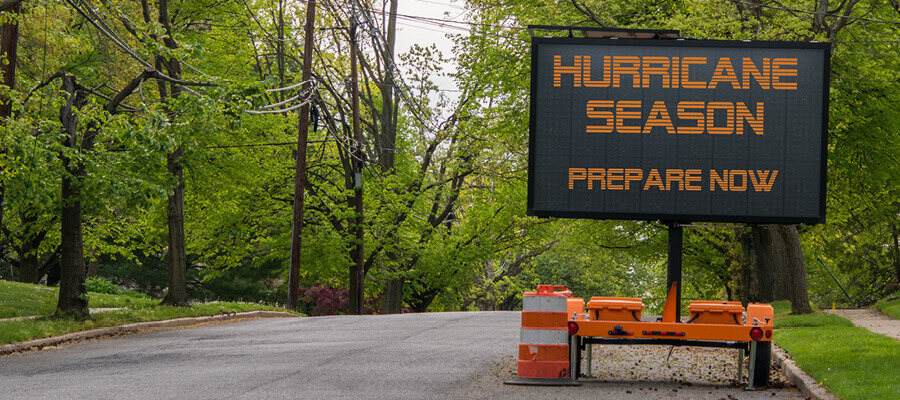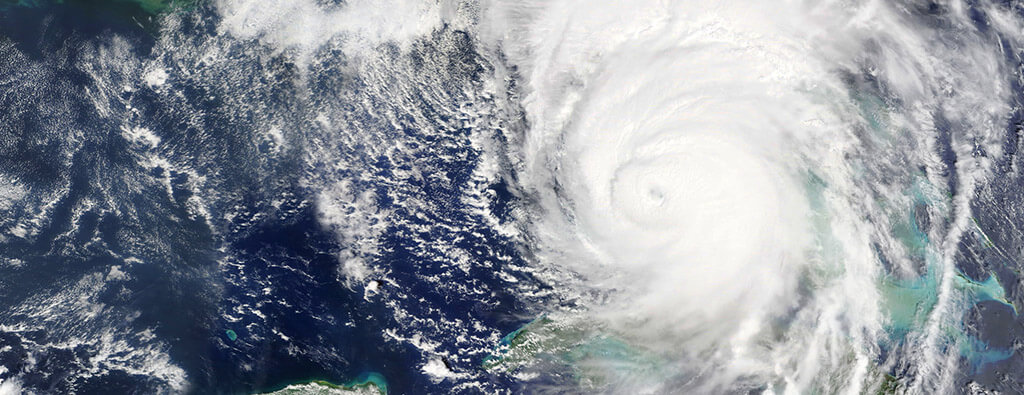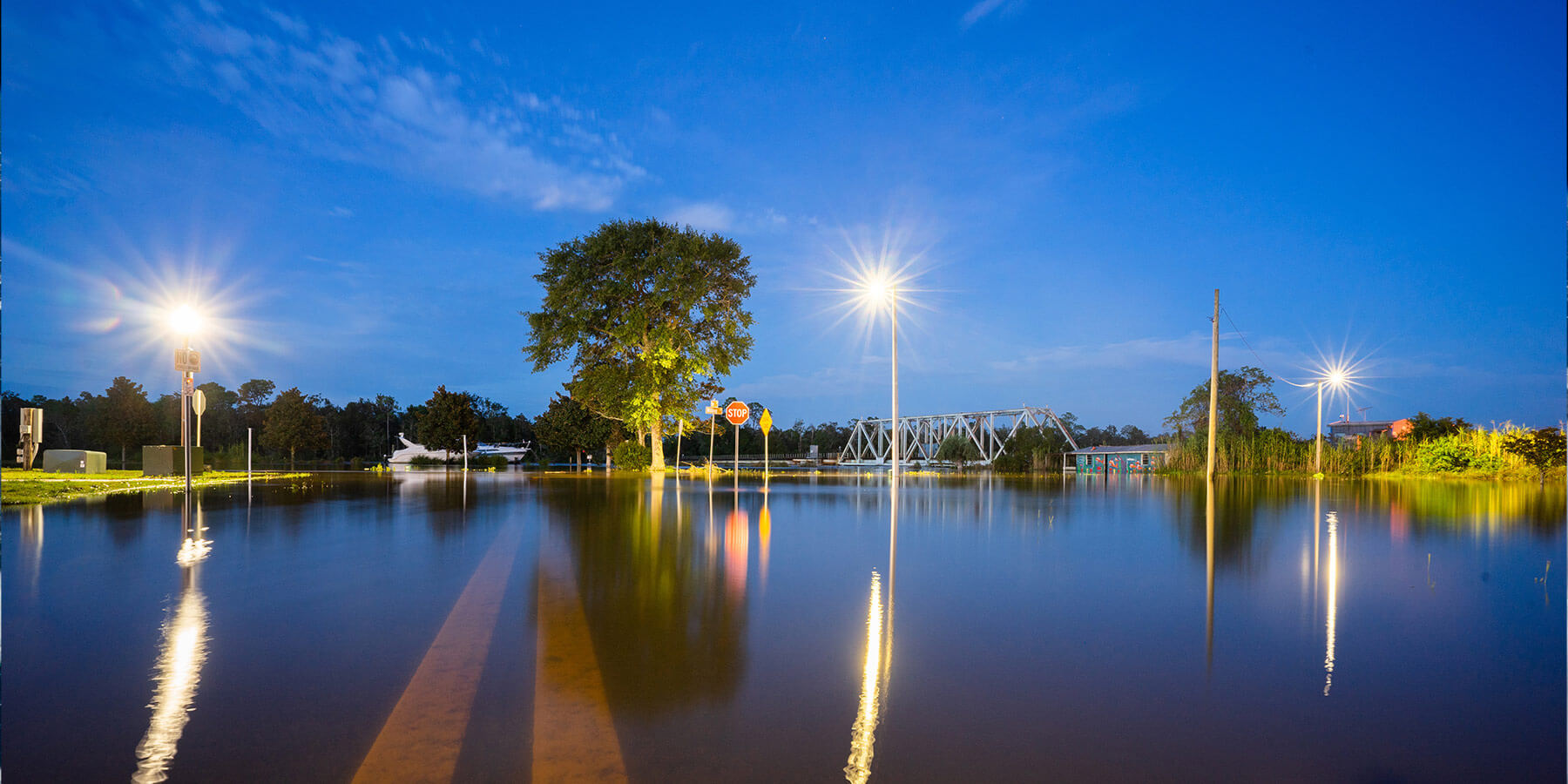Last Updates
Updated 10/10/2024 at 2:30 pm ET
- Current Status: Hurricane Milton became Post-Tropical Cyclone Milton on Thursday, October 10 after passing over the Florida Peninsula.
- Movement: Post-Tropical Cyclone Milton was seen moving east-northeast at 21 mph, with a turn toward the east expected later Thursday to continue over the western Atlantic.
- Hurricane Warning: There are no more hurricane warnings at this time for Milton.
- Storm Surge Warning: There are warnings issued for Flagler/Volusia County Line northward to Altamaha Sound Georgia, including the St. Johns River.
The Atlantic hurricane season is a six-month window known for its potential to produce severe weather events. This period, from June 1 to November 30, keeps meteorologists on high alert, watching for storm formations that could escalate into tropical storms or hurricanes.
Among the names slated for the 2024 hurricane season is Tropical Storm Milton/Hurricane Milton. With the storm now formed, we can understand how it developed and its potential impact for better preparation and resilience.
The Naming and Significance of Tropical Storm Milton
Tropical Storm Milton/Hurricane Milton is the 13th name on the 2024 Atlantic tropical cyclone list. Its selection follows a rigorous protocol established by the National Oceanic and Atmospheric Administration (NOAA). This systematic naming ensures clarity in communication, aiding meteorologists, emergency responders, and the public in tracking and preparing for potential impacts.
Today, names are selected by the World Meteorological Organization (WMO) and are retired only if a storm is particularly deadly or costly, ensuring that names remain unassociated with catastrophic events.
Past Storms Named Milton
While there have been no significant storms named Milton, the historical significance of other named storms underscores the importance of staying prepared. By examining past occurrences, we can better anticipate and prepare for the potential impact of future storms similar to Tropical Storm Milton.
How Would Hurricane Milton Form?
The evolution of Tropical Storm Milton into Hurricane Milton depended on several factors, including sea surface temperatures, humidity levels, and atmospheric pressure. The presence of these conditions allowed the storm to gather strength, characterized by a well-defined circulation pattern and the formation of an eye. Meteorologists closely monitor these variables to provide accurate forecasts, enabling communities to take timely action.
When Will Tropical Storm Milton Land?
Now that Tropical Storm Milton has formed, meteorologists will be monitoring it’s progress. Tropical Storm Milton has since intensified into Hurricane Milton and is expected to continue moving in the Gulf Coast. It is forecast to start making landfall late at night on Wednesday, October 9, or early morning on Thursday, October 10.
FAQs About Tropical Storms
- How does a tropical storm form?
The transformation from a tropical depression to a named tropical storm and eventually to a hurricane involves complex atmospheric conditions. These storms form over warm ocean waters, gaining energy from the heat and moisture. When wind speeds reach 39 mph, the system is classified as a tropical storm and given a name. Should these winds intensify to 74 mph, the storm would become a hurricane. - What are the differences between a hurricane watch and a warning?
A hurricane watch means that a hurricane is possible in your area, while a hurricane warning indicates that a hurricane is expected to hit your location soon. - What should I do if a hurricane is approaching?
If a hurricane is approaching, it’s important to stay informed through local news and alerts, have an emergency kit ready, and follow evacuation orders if issued. - How does modern technology help in monitoring tropical storms?
Advancements in technology have significantly improved our ability to monitor and predict tropical storms. Satellite imagery, Doppler radar, and computer models provide real-time data, enabling precise tracking and forecasting. These tools are invaluable in preparing for potential impacts and mitigating damage.
Hurricane Preparation Tips for Local Governments
- Build Strong Communication Networks
Local authorities should establish and maintain diverse communication platforms, such as social media, community radio, television broadcasts, and local websites, to ensure the public receives timely and accurate updates. - Create and Continuously Revise Emergency Plans
Have detailed emergency plans that specify roles, responsibilities, and procedures for various hurricane situations. Community outreach initiatives should focus on educating residents about these plans. - Collaborate with Emergency Services and Practice Drills
Communities should have partnerships with local emergency services for effective response. Conducting regular drills and training sessions within the community will help everyone practice evacuation strategies and emergency actions. - Prepare and Maintain Accessible Emergency Shelters
Identify and prepare emergency shelters with all necessary supplies. These facilities should be accessible to every resident, including individuals with disabilities and special needs, while ensuring a well-stocked inventory of essential items. - Design and Communicate Evacuation Plans and Routes
Develop clear and comprehensive evacuation plans that include designated routes and alternatives. These routes need to be clearly marked and unobstructed, with ongoing community education sessions to keep residents informed about these strategies.
Community Involvement in Hurricane Preparedness
Community involvement is vital in hurricane preparedness. Local organizations, schools, and businesses should collaborate with government agencies to disseminate information, conduct drills, and provide resources. A well-informed and prepared community can significantly reduce the impact of a storm.
Watching for Tropical Storm Milton’s Formation and Affects
The formation of Tropical Storm Milton/Hurricane Milton serves as a reminder of the importance of preparedness and resilience. By understanding the science behind storm development, staying informed, and following established guidelines, we can minimize the impact of such events. For further resources and detailed guides on hurricane preparedness, visit our Hurricane Resource Center.



